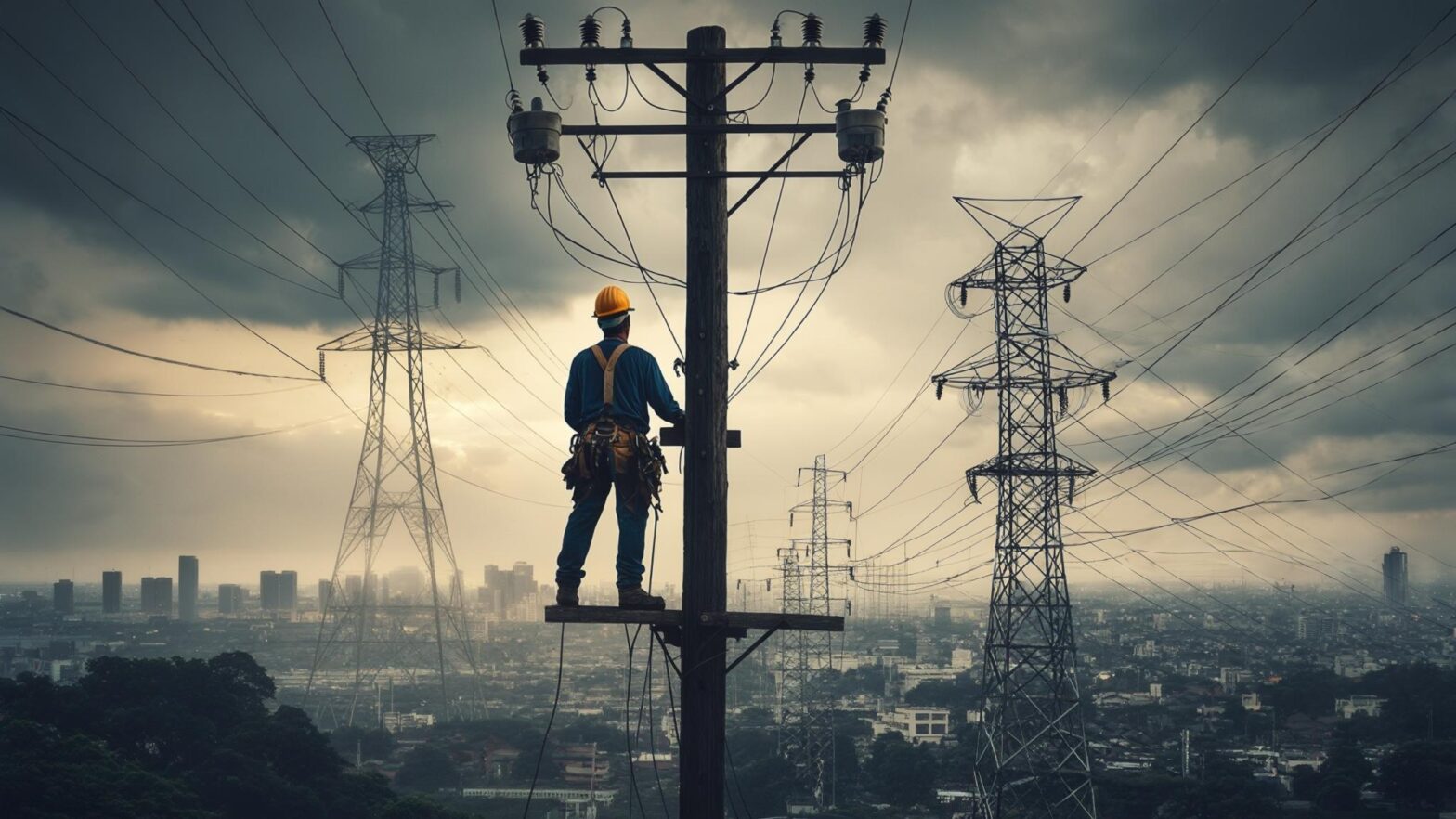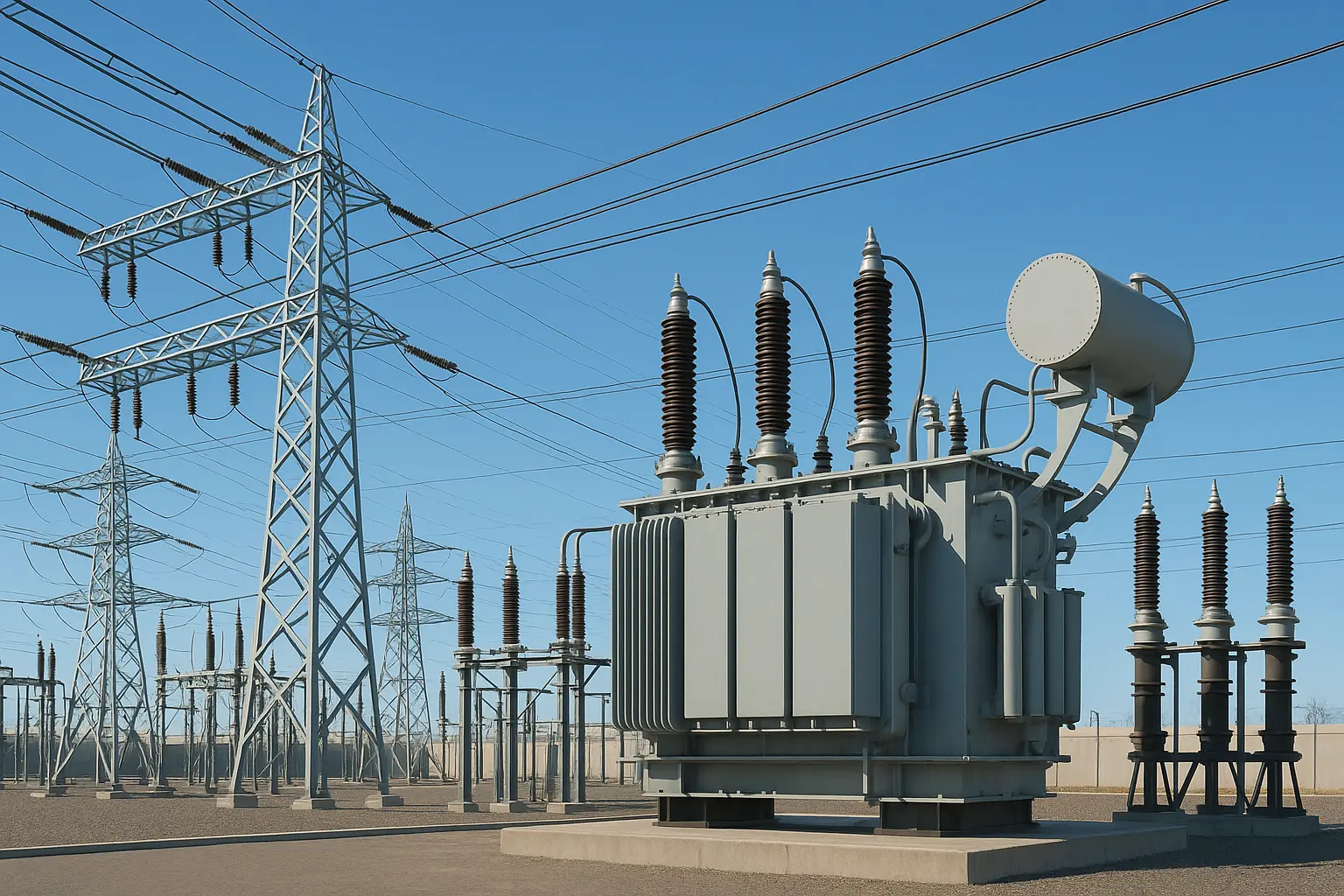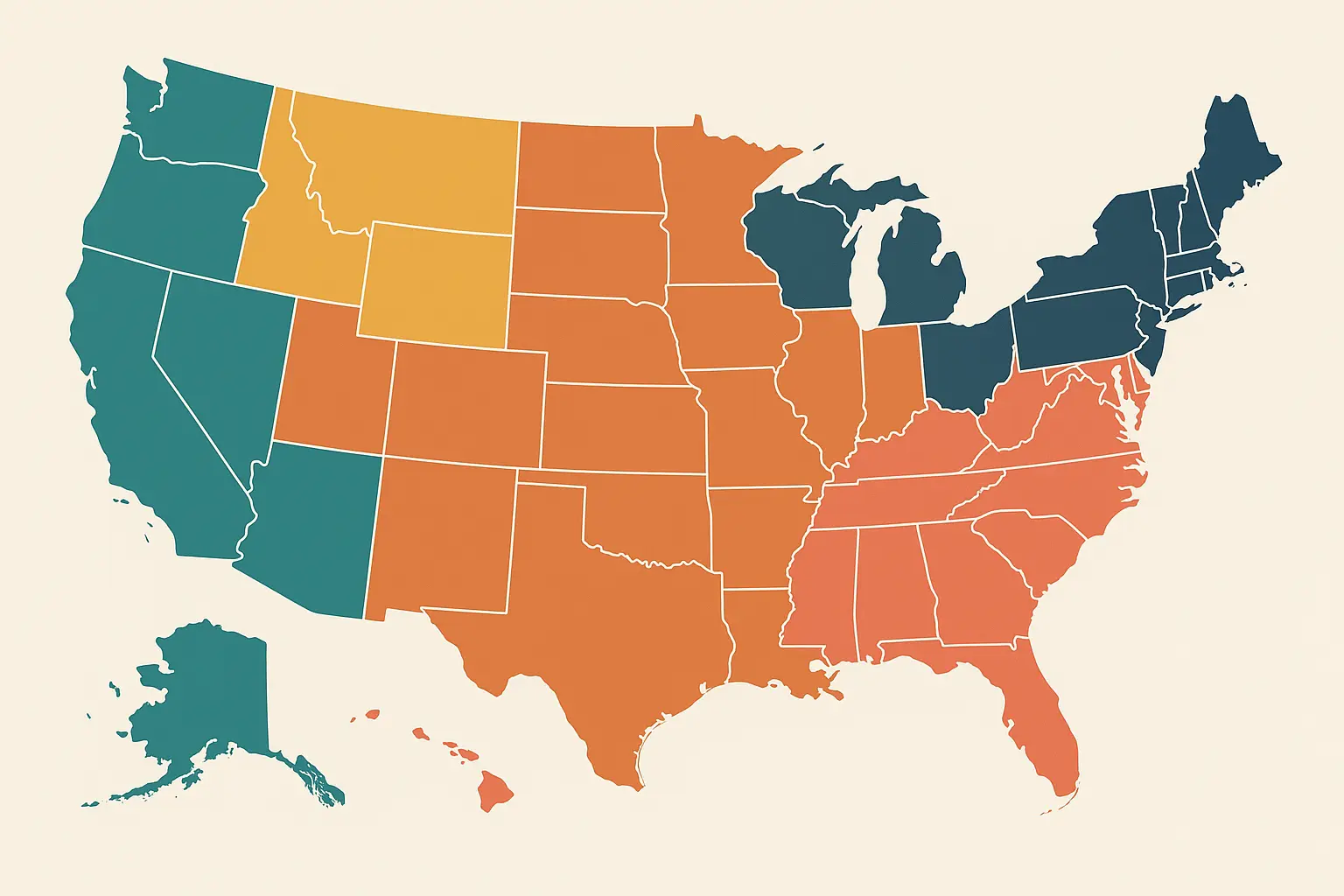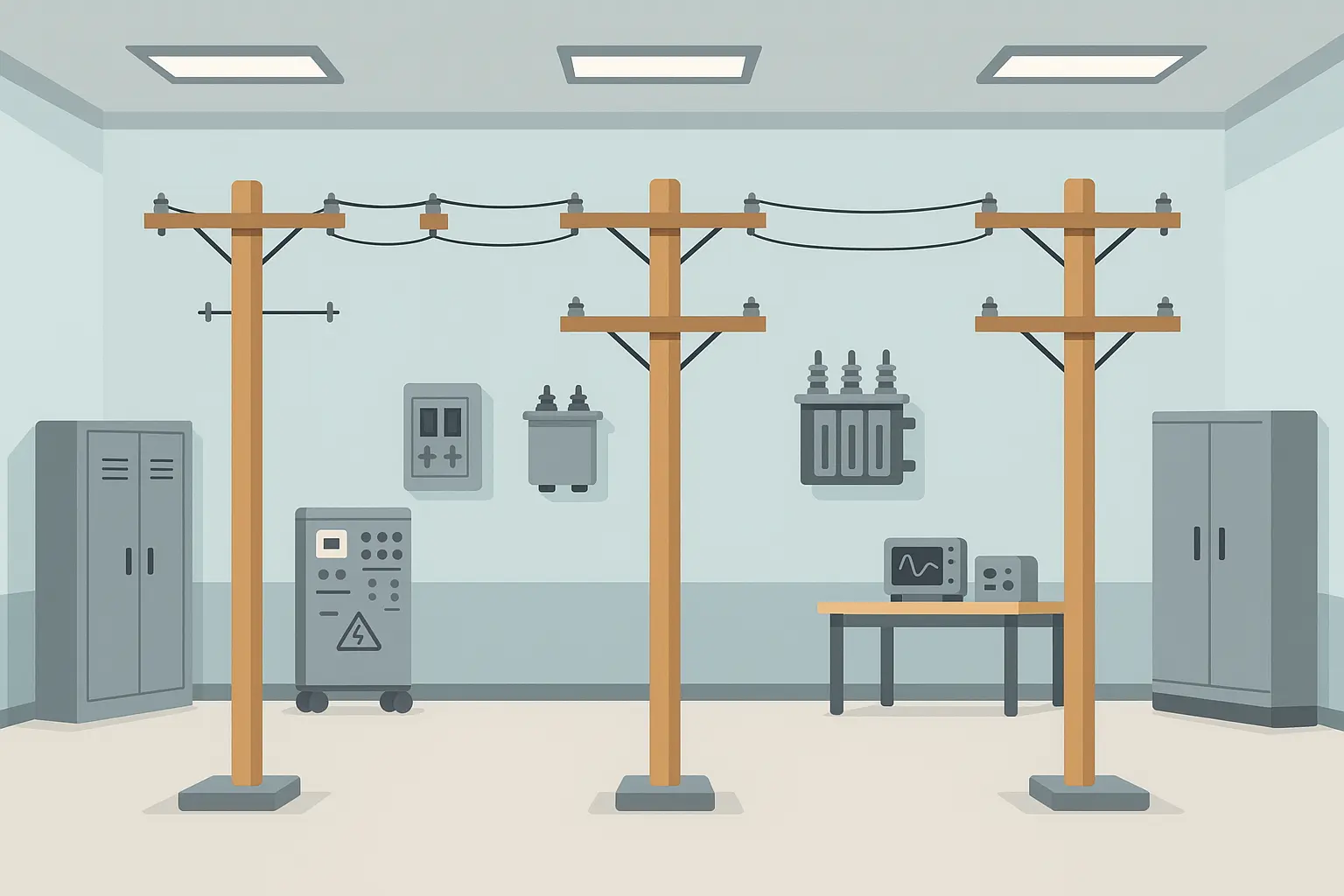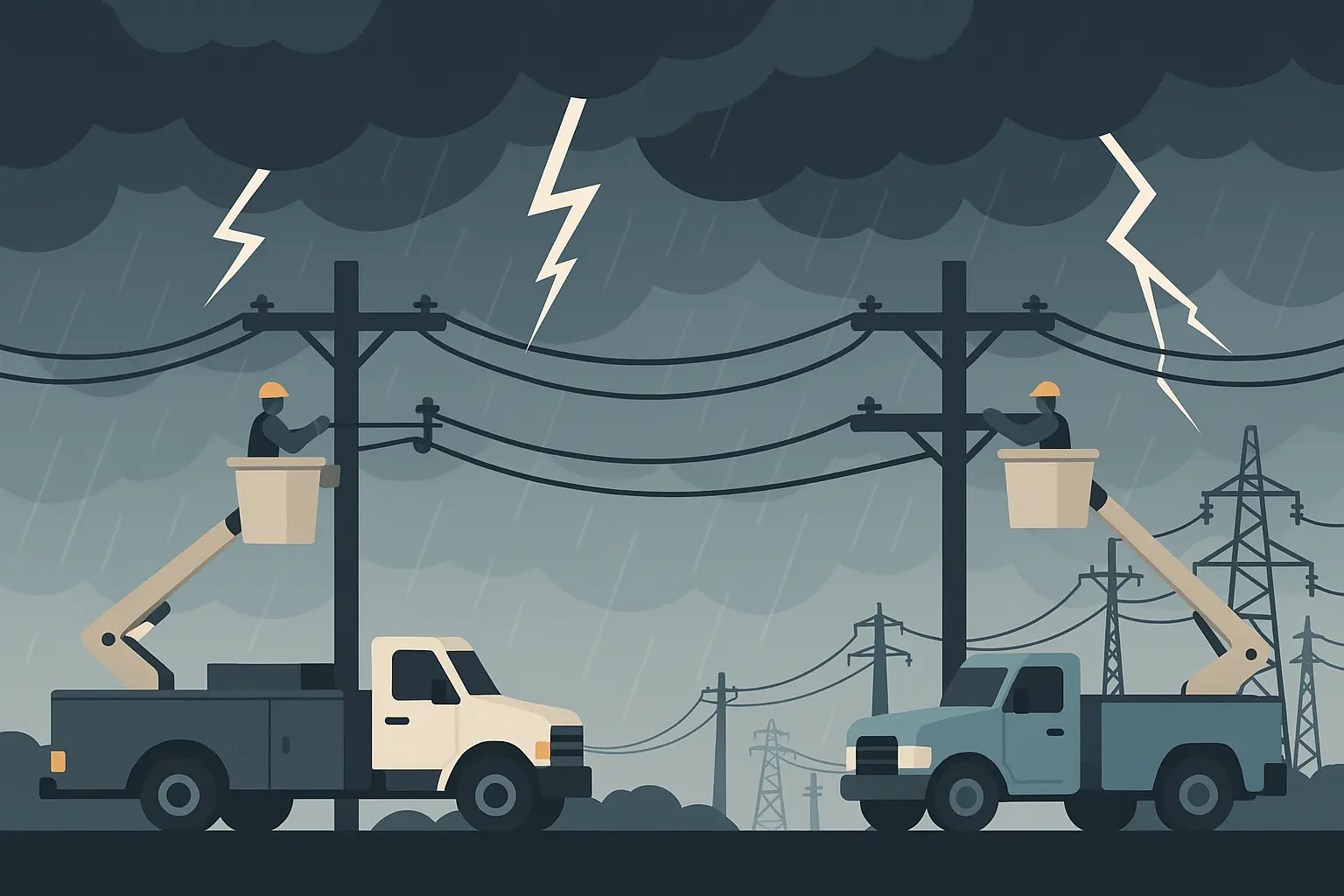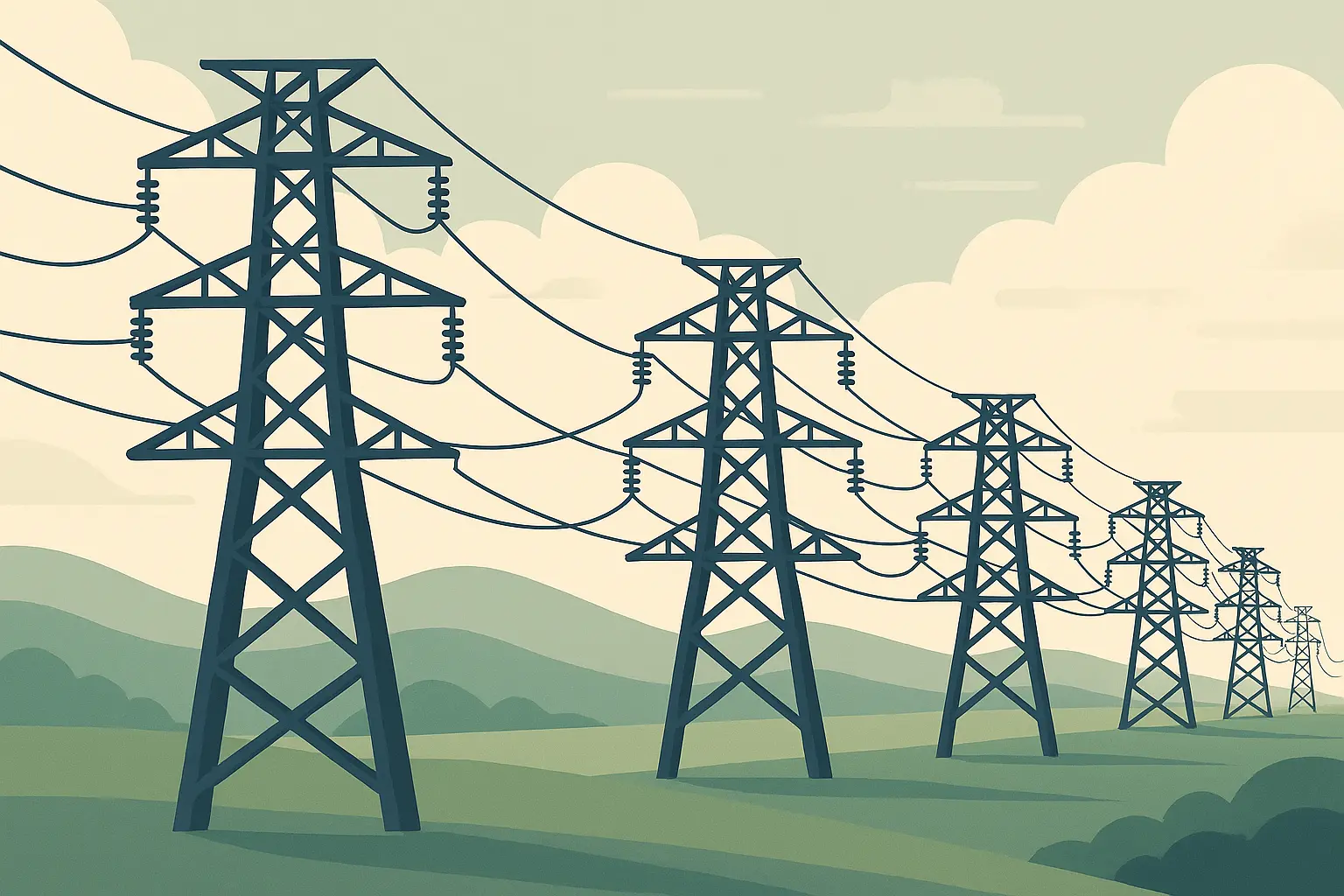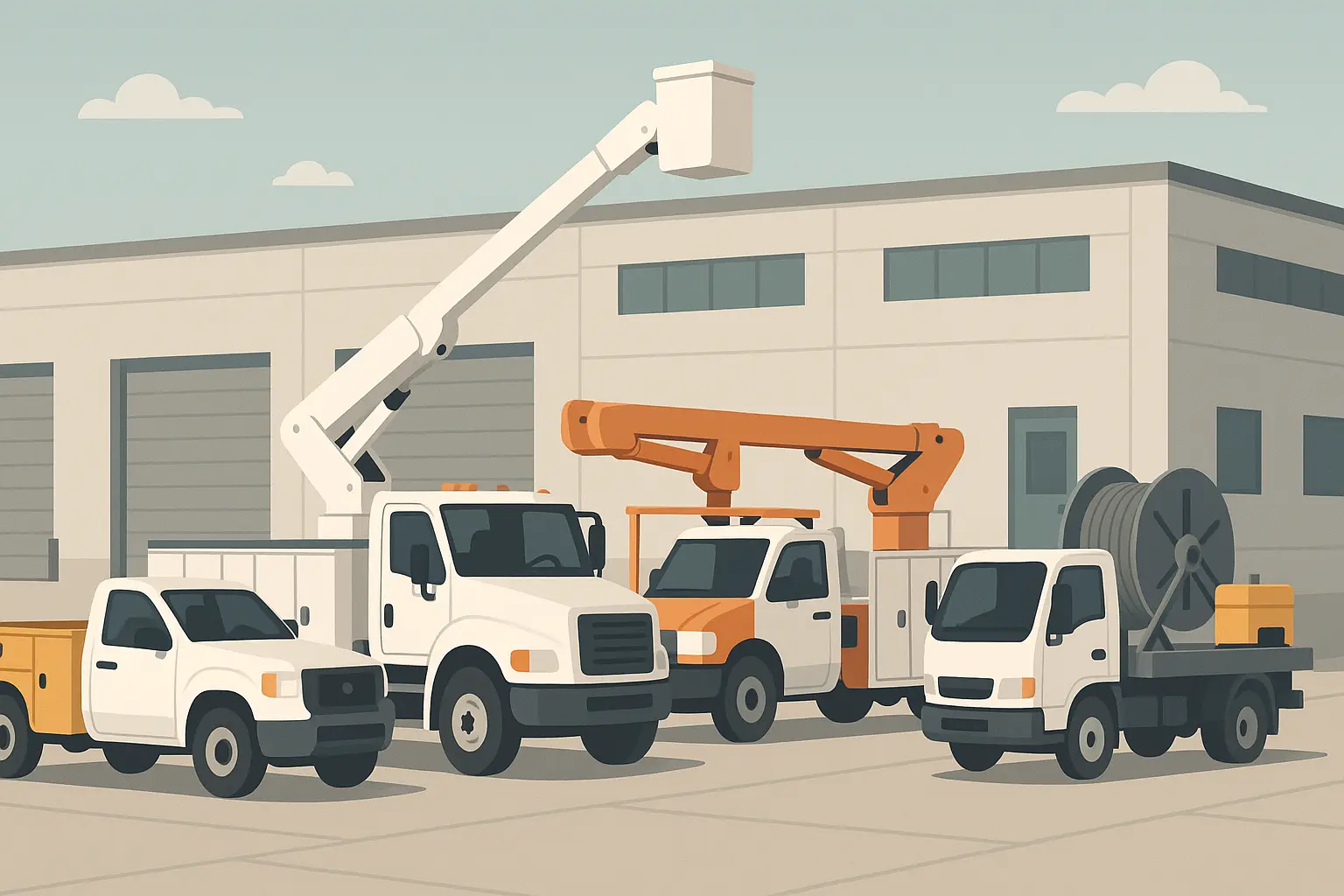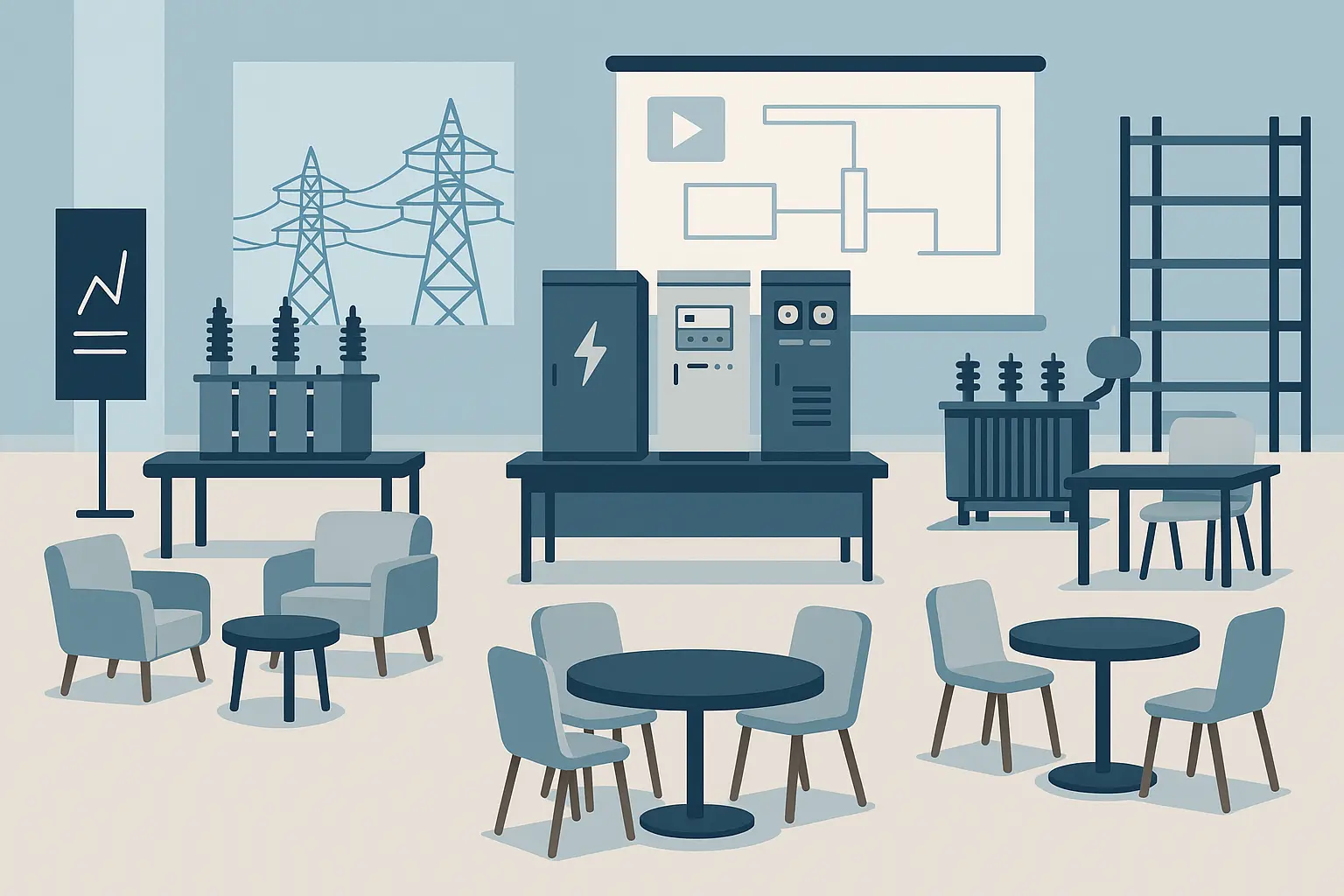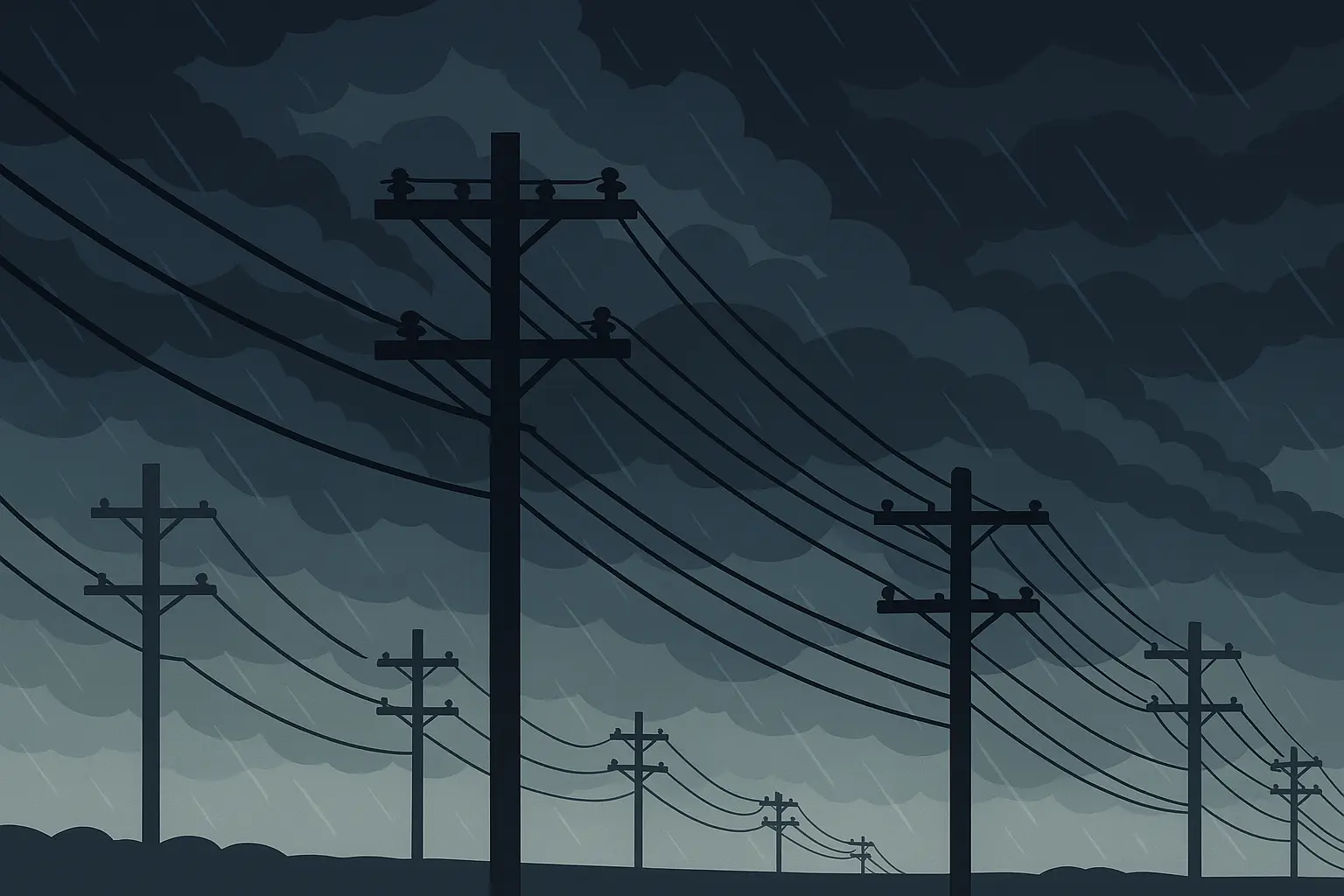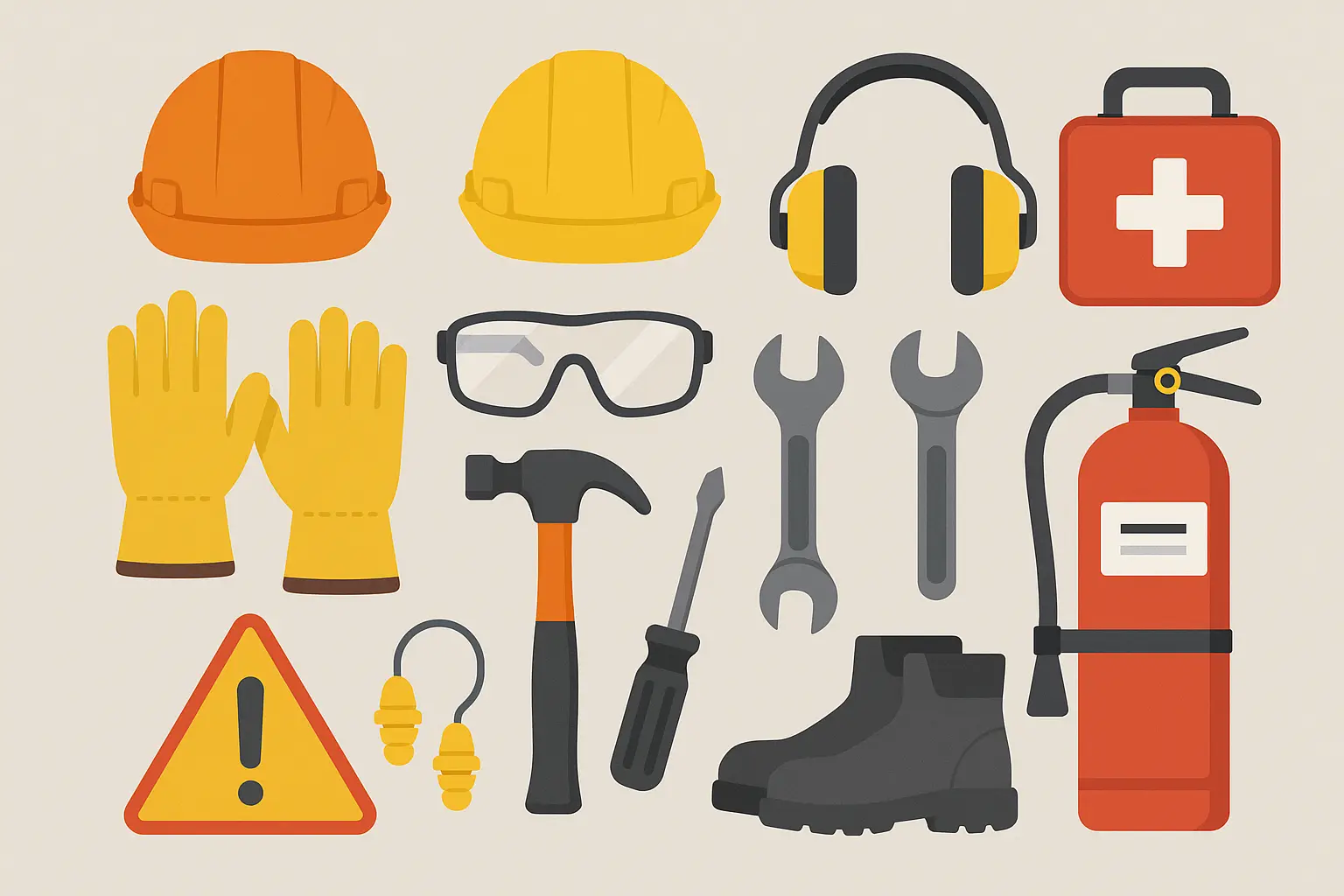Look, I’m going to be straight with you about electrician lineman salary because there’s a lot of BS floating around online. Yes, you can make great money – I know guys pulling in $150K+ – but let me tell you what nobody talks about when you’re starting out.
The median lineman salary in the United States hits $81,760 according to Lineman Central, but that number doesn’t tell the whole story. The real earning potential in this field comes from understanding how overtime, specializations, and smart career moves can seriously boost your paycheck.
Table of Contents
- Understanding How Much Linemen Actually Make
- The Apprentice Journey and What It Really Pays
- Overtime and Storm Work: Where the Real Money Lives
- Specializing for Bigger Paychecks
- Different Employers, Different Paychecks
- Smart Moves to Maximize Your Earning Power
- What You’ll Actually Be Doing (And Why It Pays So Well)
- Final Thoughts
TL;DR
- Entry-level linemen start around $45,000-$65,000, but experienced workers easily hit $75,000-$120,000+ annually
- Apprentices begin at roughly 50-60% of journeyman wages with regular increases throughout training
- Storm work and overtime can add massive chunks to your paycheck – sometimes doubling your base salary
- Specializing in hot line work or transmission systems can bump your pay by $10,000-$20,000 annually
- Utility companies typically offer the best total compensation packages, while contractors might pay higher hourly rates
- Formal lineman school graduates often start $5,000-$10,000 higher than those without training
- The dangerous, technical nature of the work directly justifies the premium wages in this field
Understanding How Much Linemen Actually Make
Let’s cut through the noise and talk real numbers about electrician lineman salary expectations. Entry-level linemen start around $45,000-$65,000, but here’s what matters more – experienced guys easily hit $75,000-$120,000+ annually. I know linemen pulling in $150K+ in high-demand markets, and it’s not because they got lucky.
Geography plays a huge role in determining your electrician lineman salary potential. According to the Lineman Central salary analysis, linemen in Hawaii make the most money in 2025, with their average salary reaching $98,440, while Mississippi sits at the bottom around $28.75 per hour. If you’re willing to relocate, that decision alone could be worth $20K+ annually.
Your First Paycheck Reality Check
I’ll be straight with you – your first lineman paycheck might feel underwhelming compared to what you’ve heard about the field. Most newcomers start in that $45K-$65K range, but don’t let that discourage you. The real money comes as you prove yourself reliable and gain experience.
Location makes a huge difference here. If you’re willing to work in Alaska or Hawaii, you’ll see those numbers jump considerably. Urban areas also tend to pay more, though cost of living usually follows suit. Sometimes a smaller utility in a rural area with lower living expenses actually puts more money in your pocket at the end of the month.
| Experience Level | Annual Salary Range | Hourly Rate Range | Key Factors |
|---|---|---|---|
| Entry-Level (0-2 years) | $45,000-$65,000 | $22-$31 | Location, formal training completion |
| Mid-Career (3-7 years) | $65,000-$95,000 | $31-$46 | Specializations, overtime availability |
| Experienced (8+ years) | $75,000-$120,000+ | $36-$58+ | Leadership roles, premium specialties |
| Top Performers/Specialists | $120,000-$200,000+ | $58-$96+ | Storm work, travel, hot line expertise |
When Experience Starts Paying Off
Once you’ve got 5+ years under your belt, you’re looking at $75K-$120K as your new normal. Experience isn’t just about time served – it’s about becoming someone crews can count on during emergencies. When you’re the person they call for tough jobs, your electrician lineman salary reflects that value.
The demand for skilled linemen continues driving wages upward. According to “Cowboy State Daily”, linemen willing to travel can make $200,000+ annually, particularly in high-demand markets where utilities are “really crammed for linemen.”
You might love your hometown, but if you’re serious about maximizing your earning potential, you need to think strategically about location. States dealing with harsh weather conditions year-round pay premium wages because they need linemen who can handle whatever nature throws at them.
The Apprentice Journey and What It Really Pays
Apprentice programs start you at about 50-60% of journeyman wages – roughly $35,000-$45,000 annually while you learn fundamental skills and safety protocols. It’s not great money, but you’re getting paid to learn skills that’ll set you up for decades of solid earning potential.
Many aspiring linemen wonder about educational requirements for starting their careers. While completing your high school diploma or GED is typically the minimum requirement for apprentice programs, having proper documentation ready is crucial for the application process.
Starting from the Bottom (But Not Staying There)
Think of your first apprentice year as an investment. You’re not just earning a paycheck; you’re building the foundation for a career that can easily support a family and provide real financial security. Beginning apprentices earn approximately $35,000-$45,000 annually while learning under close supervision.
The beautiful thing about apprenticeships is structured raises every 6-12 months. It’s not huge money at first, but watching your paycheck grow consistently feels pretty good. By your final year, you’ll be earning 85-90% of what journeyman linemen make.
Jake in Colorado started as a first-year apprentice at $18.50/hour ($38,480 annually). By his second year, his wages increased to $22/hour ($45,760), and by his final year, he was earning $28/hour ($58,240) – nearly matching journeyman wages before even completing his certification.
According to Seattle City Light’s apprenticeship program, apprentices earn at least $34/hour to start, with wage step increases as they gain experience and knowledge, demonstrating how structured progression can provide substantial earning potential even during training.
This structured approach takes the guesswork out of when you’ll see more money. You know exactly what to expect and when, which makes it easier to plan your finances during the training period.
Overtime and Storm Work: Where the Real Money Lives
Here’s where things get interesting for your electrician lineman salary potential. Storm season can literally make your entire year. When hurricanes, ice storms, or tornadoes knock out power, utilities pay whatever it takes to get crews working around the clock – time-and-a-half, double-time, plus additional hazard pay and per diem.
Storm Season Can Make Your Year
I know linemen who make 40-50% of their annual income during storm season. It’s exhausting work – 16-hour days for weeks at a time – but the financial rewards can be life-changing. The earning potential during major weather events can be extraordinary, with Lineman Central reporting that linemen chasing storm jobs can make $13,000-$14,000 per week during major weather events.
Marcus, a journeyman lineman from Texas, spent three months on storm restoration in Florida following hurricane damage. His regular $35/hour wage jumped to $52.50/hour (time-and-a-half), plus $75/day per diem and hotel coverage. Those three months earned him nearly $45,000 – equivalent to what some workers make in an entire year.
Travel Assignments: Your Ticket to Bigger Paychecks
If you’re single or your family situation allows it, travel assignments can seriously boost your income. Beyond your regular pay, you’ll get per diem for meals, lodging allowances, and travel pay. Some guys add $15K-$30K annually just from travel work.
The experience you gain working for different utilities in various regions also makes you more valuable long-term. Each company has slightly different procedures and equipment, making you a more versatile and marketable lineman.
Most people dread working holidays and weekends. As a lineman, you’ll start looking forward to them. Premium pay for these shifts can add serious money to your annual earnings, especially if you’re willing to be the person who always says yes to extra work.
On-call pay is another nice bonus. Even when you’re not actively working, many utilities pay you just for being available. It’s not huge money, but it adds up over time.
Specializing for Bigger Paychecks
Specialized lineman positions command premium wages due to extreme safety requirements and specialized training needs. If you’re looking to maximize your electrician lineman salary, specialization is one of the most reliable paths to higher earnings.
Hot Line Work: High Risk, High Reward
Working hot (on energized lines) isn’t for everyone, but if you can handle it, the pay reflects the risk. Hot line specialists typically earn $10K-$20K more annually than regular distribution line workers. The training is intense, the safety requirements are extreme, and the margin for error is zero.
Not every lineman wants to do this work, which keeps demand high for those who can. If you’ve got steady nerves and can follow safety protocols religiously, hot line work can significantly boost your earning potential.
Transmission Work: The Big Leagues
Transmission linemen work on the high-voltage lines that carry power between cities and regions. This work requires additional training and certifications, but it pays accordingly. The complexity of transmission systems and their critical importance to the electrical grid means companies pay premium wages for qualified specialists.
The work is more technical and often involves larger, more complex projects. If you enjoy the engineering aspects of electrical work, transmission specialization can be both intellectually rewarding and financially beneficial.
Moving Up the Ladder
Becoming a crew leader is often the first step up the management ladder. You’ll earn $5K-$15K more annually while still doing hands-on work. The role involves coordinating job assignments, managing crew safety, and interfacing with supervisors and customers.
Leadership skills matter here. Companies promote linemen who can keep crews productive, maintain safety standards, and handle the inevitable personality conflicts that arise when people work in stressful conditions.
Foremen and superintendents represent the top of the field hierarchy, earning $90K-$140K+ annually. These roles combine deep technical knowledge with project management skills. You’ll oversee multiple crews, coordinate with engineers, and handle administrative responsibilities.
The jump to foreman level often requires additional training in project management, budgeting, and personnel management. But for experienced linemen who want to stay connected to field work while earning management-level salaries, it’s an attractive career path.
Different Employers, Different Paychecks
Your electrician lineman salary can vary dramatically depending on who signs your paycheck. Understanding the compensation differences between various employers helps you make strategic career decisions.
Big Utilities: The Gold Standard
Major investor-owned utilities usually offer the best total compensation packages in the industry. Sure, the base salary might not always be the highest, but when you factor in health insurance, pension contributions, and stock options, the total value often exceeds what you’d get elsewhere.
These companies also tend to have the most structured career advancement paths. They invest heavily in employee development because they want to retain experienced professionals rather than constantly training new ones.
| Employer Type | Base Salary Range | Benefits Package | Job Security | Career Advancement |
|---|---|---|---|---|
| Investor-Owned Utilities | $65,000-$120,000 | Excellent (Health, Pension, Stock) | High | Structured paths |
| Municipal Utilities | $55,000-$95,000 | Very Good (Pension focus) | Very High | Moderate |
| Electrical Contractors | $70,000-$130,000 | Variable | Moderate | Project-based |
| Cooperatives | $50,000-$85,000 | Good | High | Limited |
| Independent Contractor | $100,000-$200,000+ | Self-managed | Low | Self-directed |
Contracting: Higher Risk, Higher Reward
Contracting companies often pay higher hourly rates than utilities, but benefits packages are usually less comprehensive. This appeals to linemen who prefer flexibility or want to maximize short-term earnings. You might work for multiple contractors throughout the year, gaining diverse experience.
The downside is less job security and fewer benefits. You’ll need to be more proactive about managing your career and finances, but the potential for higher earnings exists if you’re willing to hustle.
Going Independent: Ultimate Risk/Reward
Independent contracting represents the highest earning potential in the field. Experienced linemen can charge $100-$150+ per hour, but you’re running a business. You’ll handle your own insurance, equipment, taxes, and finding work.
This path isn’t for everyone. You need business skills, financial discipline, and enough experience that utilities trust you with critical work. But for the right person, independent contracting can be extremely lucrative.
Public utilities and cooperatives might not pay the highest salaries, but they often provide excellent job security and benefits. If you value stability and work-life balance over maximum earnings, these employers can be attractive options.
The pension plans at public utilities are often outstanding, and job security is typically better than in the private sector. For linemen planning long-term careers, the total lifetime value of public sector employment can be quite competitive.
Public sector opportunities continue expanding, with programs such as Manitoba Hydro’s Power Line Technician program offering structured four-year apprenticeships where journeypersons make hourly rates between $42.43 and $51.96, demonstrating the competitive compensation available in public utilities.
Smart Moves to Maximize Your Earning Power
Strategic career planning can significantly impact your long-term electrician lineman salary potential. The difference between linemen who plateau at average wages and those who consistently earn top dollar often comes down to smart decisions about education, certifications, and career positioning.
For career changers considering the electrical field, understanding electrician education requirements can help you plan your transition into lineman work effectively.
Education: Your Best Investment
Formal lineman training isn’t cheap, but it pays for itself quickly. Graduates typically start $5K-$10K higher than people who try to learn on the job. More importantly, you’ll advance faster because you already understand the fundamentals.
Employers prefer hiring people with formal training because it reduces their risk. They know you’ve been exposed to proper safety procedures and basic technical concepts, which means less time and money spent getting you up to speed.
Many training programs require proof of high school completion, so having your high school diploma documentation ready is essential for enrollment.
Pre-Employment Training Checklist:
- Research accredited lineman schools in your area
- Compare program costs vs. potential salary increases
- Verify school job placement rates and employer partnerships
- Ensure program covers both classroom theory and hands-on training
- Check if financial aid or employer sponsorship is available
- Confirm program meets local utility hiring requirements
Certifications That Actually Pay
Certain certifications can bump your pay immediately. Fiber optic training, underground systems expertise, and advanced safety certifications all command premium wages. The key is choosing certifications that align with where the industry is heading.
Don’t just collect certificates randomly. Research what your local utilities need and focus on those areas. A well-chosen certification can open doors to specialized positions that pay significantly more than general lineman work.
Never Stop Learning (Seriously)
The electrical industry keeps evolving. New equipment, updated safety protocols, and changing regulations mean you can’t coast on what you learned years ago. Linemen who stay current with industry changes consistently earn more than those who don’t.
Many utilities pay for continuing education, so take advantage of it. The investment in your skills today determines your earning potential tomorrow.
Become a Swiss Army Knife
The most valuable linemen can handle multiple types of work. Distribution, transmission, underground, overhead – the more systems you understand, the more valuable you become. Versatility means you’re never sitting on the bench when work is available.
Cross-training also protects you during economic downturns. When utilities cut back, they keep the people who can do multiple jobs rather than specialists with narrow skill sets.
Sarah started as a distribution lineman earning $28/hour. After cross-training in fiber optics and underground systems, she became her utility’s go-to person for complex projects, earning $38/hour plus project bonuses. Her versatility made her indispensable and boosted her annual income by over $20,000.
Networking Actually Works
The lineman community is smaller than you might think. Word travels fast about who’s reliable, skilled, and easy to work with. Building relationships within the industry often leads to better job opportunities and career advancement.
Attend industry events, join professional organizations, and maintain relationships with former coworkers. Many of the best job opportunities never get posted publicly – they go to people someone knows and trusts.
What You’ll Actually Be Doing (And Why It Pays So Well)
Understanding the specific duties and responsibilities helps explain why the electrician lineman salary structure commands premium wages compared to other electrical trades. The dangerous, technically complex nature of this work directly correlates with higher compensation levels.
High-Voltage Reality Check
We’re not talking about household electrical work here. You’ll work with voltages that can kill you instantly – anywhere from 4,000 to 765,000 volts. The technical knowledge required to work safely at these voltage levels takes years to develop, and the risk never completely goes away.
This isn’t a job where you can have an off day. One mistake with high-voltage electricity can be fatal, which is why utilities pay premium wages for people who can handle this responsibility consistently.
Emergency Response: When Everyone Else Goes Home
When storms knock out power, everyone else goes home and waits. Linemen go to work. The 24/7 nature of electrical emergencies means you’ll work when others can’t or won’t. This availability commands premium pay because utilities need people they can count on during crises.
Emergency work often happens in the worst possible conditions – ice storms, hurricanes, extreme heat or cold. The combination of dangerous weather and high-voltage electricity creates situations that require both technical skill and physical courage.
Physical and Mental Demands
This work demands both physical strength and mental sharpness. You’ll climb poles and towers, work in bucket trucks at significant heights, and handle heavy equipment – all while making precise electrical connections that could be dangerous if done incorrectly.
The mental pressure is constant. Every decision you make has safety implications, not just for yourself but for your crew and the public. This level of responsibility, combined with the physical demands, justifies the premium wages in this field.
Safety Equipment Expertise
The safety equipment alone costs thousands of dollars per lineman. Hard hats, insulated gloves, flame-resistant clothing, fall protection gear – you’ll use specialized equipment that most people never see. Knowing how to use this equipment properly isn’t optional; it’s literally life or death.
Utilities invest heavily in safety training and equipment because accidents are incredibly expensive. They pay premium wages partly to attract people who take safety seriously and follow procedures religiously.
Essential Safety Equipment Checklist:
- Class E hard hat (electrical protection)
- Insulated rubber gloves (voltage-rated)
- Flame-resistant clothing (arc-rated)
- Safety glasses with side protection
- Fall protection harness and positioning belt
- Insulated tools for electrical work
- First aid and CPR certification
- Proper climbing equipment and spikes
Risk Assessment Under Pressure
Every job site presents unique hazards that you must assess and manage. Weather conditions, equipment condition, voltage levels, public safety – you’re constantly making decisions that could have serious consequences. This level of responsibility requires experience, training, and judgment that commands premium compensation.
The ability to work safely under pressure, especially during emergency situations, is what separates professional linemen from other electrical workers. It’s also why the pay scale reflects the critical nature of these skills.
Speaking of credentials and career preparation, many lineman training programs and employers require proof of high school graduation or equivalent education during the application process. If you’ve lost your original diploma over the years (it happens more than you’d think), replacing a lost diploma can help you get the documentation you need to pursue lineman training and career opportunities.
Final Thoughts
The electrician lineman salary landscape offers real opportunities for people willing to invest in proper training and commit to ongoing professional development. Starting wages might seem modest, but the earning potential grows significantly with experience, specialization, and strategic career moves.
What sets this field apart is the multiple ways to increase your income – overtime opportunities, premium pay for specialized work, geographic flexibility, and clear advancement paths. The combination of technical complexity and inherent risks creates a compensation structure that rewards competence and reliability.
Your success will depend on making smart choices about training, certifications, and career progression. The linemen earning six figures didn’t get there by accident – they invested in their skills, built strong professional reputations, and positioned themselves for the highest-paying opportunities in the field.
For those considering career changes into the skilled trades, understanding careers that don’t require a college diploma can help you evaluate whether the lineman profession aligns with your educational background and career goals.
Whether you’re starting fresh or transitioning from another field, having proper educational documentation is crucial. If you need to get your high school diploma or replace missing credentials, addressing these requirements early will keep your career timeline on track.
The work isn’t easy, and it’s definitely not for everyone. But for those who can handle the physical demands, technical challenges, and safety responsibilities, the financial rewards can provide excellent long-term career stability and earning potential that’s hard to match in other trades.
As you plan your entry into this field, remember that proper documentation of your educational background is essential for both training programs and employment opportunities. Services for replacement diplomas can help ensure you have all necessary credentials ready when opportunity knocks.
The electrician lineman salary potential reflects the high-skill, high-risk nature of the work, with multiple pathways for career advancement and income growth. Success requires strategic planning, continuous learning, and a commitment to safety, but the financial rewards can provide excellent long-term career stability for those willing to invest in proper training and skill development.
